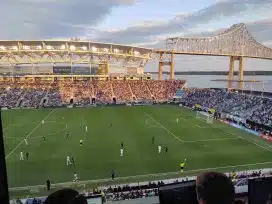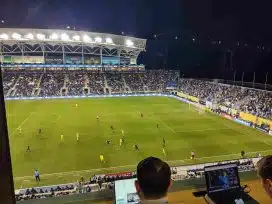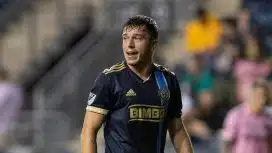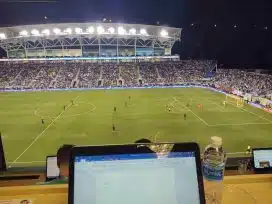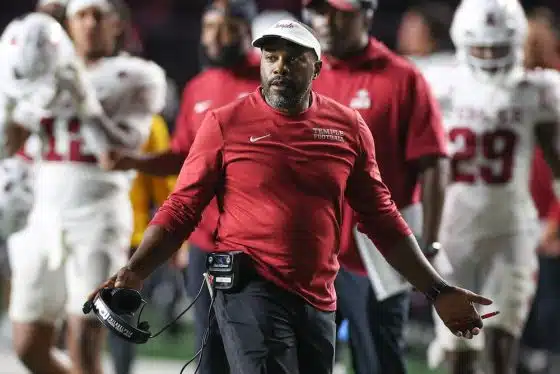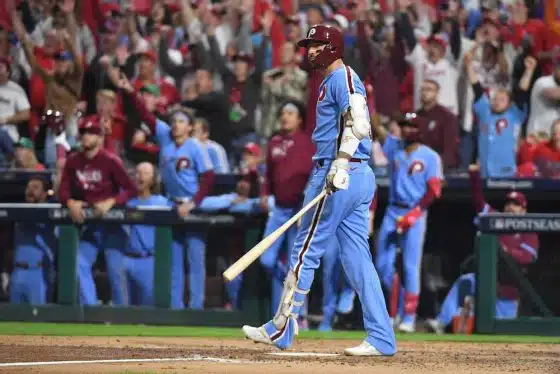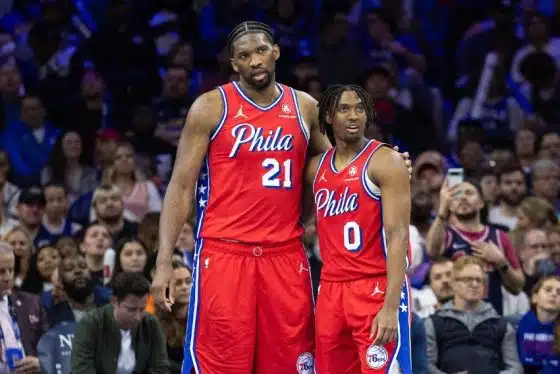Flyers
Series in Review: Flyers-Capitals 2016
By Kevin Durso, Sports Talk Philly editor
The Flyers weren’t supposed to be in the playoffs in 2016. Not with a new head coach with no prior professional experience behind the bench and a group of upstart players that used a strong second half run to even enter the discussion.
But there they were, on what was technically the NHL’s final day of the regular season — it was only Game 81 for the Flyers due to a prior postponement — clinching a playoff spot by beating the Pittsburgh Penguins at home.
Before the game, Lauren Hart sang God Bless America and held up a phone that had Flyers founder and chairman Ed Snider on the other end of the line. The man who made the Flyers possible was in failing health and sat back to watch as the team reached the postseason. Two days later, Snider passed away.
The Flyers, with the series and playoff run dedicated to their founder, were set to face the Washington Capitals, the team that had won the President’s Trophy with a staggering 120 points, 11 more than any other team. So the odds were already stacked against the Flyers, but it turned out to be a much closer series than the results showed.
This was a physical game that really took a turn in the second period. The Flyers had their chances in the first, getting three power plays and failing to score.
In the second, the Flyers had failed to score on another power play, but had also held the Capitals off the board on two power-play chances as well. The turning point came just past the halfway point of the game when Sean Couturier was hit by Alex Ovechkin and left the game and was out for the remainder of the series.
A delay of game penalty to Brandon Manning gave the Capitals their third power play of the period and they finally converted, with John Carlson firing a one-timer that was tipped by Chris VandeVelde and got through Steve Mason.
That was the only goal of the game until the final four minutes. The Flyers ultimately didn’t get the time they needed to try to tie the game by taking two crucial penalties — one a bench minor at 2:30 and the other a four-minute high-sticking penalty to Sam Gagner. The game turned chippy with 6:51 to play as Tom Wilson took a boarding penalty and Wayne Simmonds came in to fight. Simmonds was also given a matching roughing minor to nullify the potential power play.
With 3:24 remaining, the Flyers got caught off a turnover by Jake Voracek. Shayne Gostisbehere was exiting the box from a 4-on-4 and trying to get to the bench to get an additional forward on the ice. That left two men back in a 3-on-2 for Washington, and Jay Beagle was the guy open in the slot to rip a shot past Mason to put the game away. The Flyers never managed to score in the game, and tempers flared at the final buzzer as Brayden Schenn decked Karl Alzner in the corner, drawing a crowd.
Much like in Game 1, there wasn’t any early scoring to really set the tone for the game, but when the Capitals power play got a chance, they struck. It was Carlson again on the power play, flinging a wrist shot through traffic and beating Mason.
For the damage that the Capitals had done to this point on the power play, the Flyers were failing to take advantage of their own opportunities. Jason Chimera and Carlson each ended up in the box with 3:01 to play, giving the Flyers a 5-on-3 for 1:07. Once again, the Flyers failed to score.
The game ultimately turned in the second. The Flyers had managed a few good chances on the 5-on-3 and Mason was playing a solid game, when a routine dump-in turned disastrous. Chimera simply re-directed a long-range clear to prevent an icing and it steered toward the goal. Mason misplayed it and the Capitals gained a 2-0 lead as a result.
Finally, at 9:37 of the second, the Flyers did get on the board when Voracek jumped on a rebound and got it under Braden Holtby, but the Capitals had the answer on the power play again late in the period with Ovechkin scoring from his office at the left face-off circle.
Holtby held down the fort the rest of the way and Nicklas Backstrom scored in the final three minutes of the third to seal the result and put the Flyers in a 2-0 series hole.
This was the first game in Philadelphia since the passing of Ed Snider and it couldn’t have started any better. The pre-game festivities were outstanding and the Flyers responded to the buzz in the building by striking early.
Just 57 seconds into the period, Michael Raffl scored on a rebound to give the Flyers their first lead of the series. But at 4:43, just 15 seconds into their first power play of the game, the Capitals answered with a deflection goal by Marcus Johansson.
As the game neared the midway point, the Flyers and Capitals were still locked in a 1-1 game. That’s when Ovechkin struck again, hopping off the bench and taking control of the puck before putting a shot on goal that sailed under the glove of Mason to make it 2-1.
Entering the third, the Flyers were still only down by a goal and surely would have a chance to find the equalizer, but a penalty on Schenn at the horn put the Capitals on an immediate power play to start the third. With just two seconds remaining on the penalty, Justin Williams wrapped the puck along the boards on a dump in that hit the stanchion and popped out in front of the net to Evgeny Kuznetsov, who beat Mason with a move to make it 3-1.
At 7:37, the Capitals struck again on the power play. This time on a 4-on-3, Carlson just wound up and fired and beat Mason, making it 4-1.
Any slim hopes the Flyers had left were dashed at 12:17 when Pierre-Edouard Bellemare took a five-minute major for checking from behind and a game misconduct. A gathering followed and the frustration boiled over for Ryan White and Radko Gudas, who each got 10-minute misconducts in the fray and exited the game. That put the Capitals on a five-minute power play. The frustration of fans boiled over too, as many started throwing the bracelets used in the light-show pre-game festivities onto the ice.
The Capitals scored just under three minutes into the five-minute major with Ovechkin firing away. More fans threw bracelets onto the ice, resulting in a bench minor penalty on the Flyers, thus giving the Capitals a 5-on-3. Another late penalty kept the Capitals on a 5-on-3, and with one man finally back for the Flyers, Washington scored their fifth power-play goal of the game with Beagle getting on the board to cap off the 6-1 result and put the Flyers on the brink of elimination.
After making several line changes and opting to start Michal Neuvirth over Mason, the Flyers had nothing to lose in Game 4. Five minutes into the first, the Capitals took a penalty and finally, the Flyers made Washington pay. Gostisbehere scored the first power-play goal of the series for the Flyers to give them the early lead again.
A scary moment happened with just under four minutes to play in the first. Scott Laughton came in along the boards and was forced off the puck by Carlson as he tried to get inside. In doing so, Laughton lost his balance and slid into the board violently, staying down on the ice for several minutes and being taken off on a stretcher.
Early in the second, the Flyers were able to pad the lead with Andrew MacDonald firing a one-timer past Holtby to make it 2-0 at 3:51. The Flyers managed to get through the second killing off one power play for Washington and another abbreviated one to take the two-goal lead to the third.
Early in the third, the Capitals were able to get on the board as T.J. Oshie picked up a rebound and lifted a backhander over Neuvirth to make it 2-1. The Flyers played a disciplined game from there, holding on with the help of Neuvirth to extend the series.
The heat from some of the earlier games carried over right away in Game 5, as Schenn and Oshie dropped the gloves just 10 seconds in. Just 68 seconds into the game, the Flyers had a great chance to open the scoring with Williams in the box for four minutes for high-sticking, but could not convert. Both the Flyers and Capitals each had one power-play opportunity from there, but finished the period scoreless.
Neuvirth was especially strong in the opening period, making 14 saves, while the Flyers managed just six shots.
Each team had an abbreviated power play early in the second, then the Flyers were back on the power play at 5:49. Just three seconds after the power play expired, the Flyers were on the board with Ryan White banking a rebound in off the skate of Taylor Chorney.
It was the Neuvirth show from there. The Flyers finished the game with just 11 shots on goal and the Capitals fired 44 shots to the Flyers net with all of them being answered by Neuvirth. After making one more heart-stopping save on Johansson, VandeVelde scored into an empty net to seal the Game 5 win and force Game 6 back in Philadelphia.
Game 6 was a game filled with many small moments. In the first period, the Flyers faced a 5-on-3 penalty kill for 1:10 with just 57 seconds to play in the period. The Flyers were able to kill it off, shifting the momentum in the Flyers favor and lifting Wells Fargo Center to a roaring cheer.
In the second, the Flyers got their best chance. Nicklas Backstrom took a four-minute double-minor for high-sticking at 4:25 and five seconds later was joined by Matt Niskanen in the box on a hooking penalty, giving the Flyers a two-minute 5-on-3. As had happened so many times before on the power play, the Flyers were not able to cash in. Shortly after killing off another Capitals power play, Washington finally got on the board.
Ovechkin managed to get the puck into the slot to Johansson, creating a mini two-on-one. Johansson slid the puck across to Backstrom, who one-timed it home, giving the Capitals the 1-0 lead at 8:59 of the second.
Unlike the previous game, the Flyers definitely got more chances on net. They matched their Game 5 total in the third period of Game 6 alone, taking 11 shots and nearly catching Holtby out of position with some strange bounces and deflections. Holtby and the Capitals held on for the 1-0 defeat to complete the series win.
Though the Capitals were far and away the better team, both by performance and on paper, the Flyers could look at this series and point to two areas that really hurt them: special teams and goaltending.
Neuvirth was sensational in his three games played, allowing just two goals and taking the Game 6 loss in a 1-0 defeat. Mason, however, struggled in the series and really never recovered from that back-breaking goal allowed in Game 2 from center ice.
The special teams battle wasn’t close either. There were several times the Flyers could have turned the momentum of a game with a power-play goal. It happened in Game 4, the only time they scored on the power play. In the six games, they were a terrible 1-for-24 in the series. The Capitals were 8-for-27 in the series, but went 0-for-10 in the final three games, arguably the Flyers most competitive in the series.
Those two areas can be the great determining factors in a series. A power-play goal here or there can change a game. A soft goal — like Chimera’s center-ice dump-in in Game 2 or Ovechkin’s rather harmless looking shot attempt in Game 3, can be the deciding blow.
The absence of Couturier also did the Flyers no favors, especially on special teams. Once the Flyers made the goalie switch, you got the sense that they were in just as good a spot as Washington was in that area. Neuvirth had always had flashes of this ability in his time with the Flyers, but never had the consistent health to really stick as a team’s top starter. But Couturier provided an absence on the power play and penalty kill that simply could not be filled.
In the years since this series, there have been a few games where the Flyers have shown they can keep up with the Capitals, especially this year’s team that posted a 3-0-1 record against them. There have also been a few lopsided games on both sides.
Tomorrow, we continue this series and will look at the Flyers series from 2014 against the New York Rangers.
















